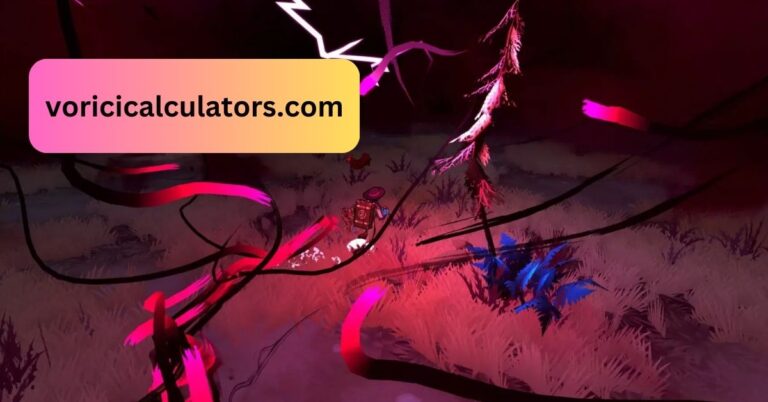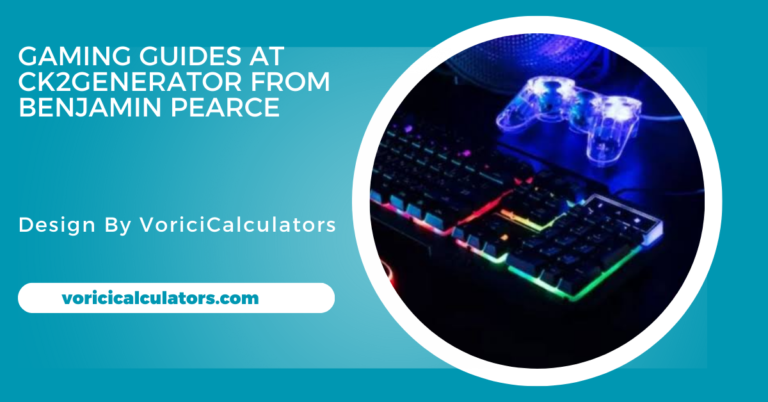Gaming Abbreviations For Recruiting For Team – A Comprehensive Guide!
Recruiting for gaming teams has evolved beyond just reviewing skills and experiences. In the modern gaming world, a recruiter’s ability to speak the same language as gamers is crucial. Understanding and using gaming abbreviations in recruitment is a strategy that can bridge the communication gap, ensure clear role definitions, and create an effective team culture.
This comprehensive guide delves into gaming abbreviations, their importance in recruitment, and strategies for leveraging them in hiring processes.
Why Understanding Gaming Abbreviations Is Important for Team Recruitment?
In the gaming world, speed and efficiency are essential, both in gameplay and communication. Abbreviations are commonly used to communicate instructions, discuss strategies, and assign roles. For recruiters, knowing these terms helps in identifying the right candidates, assessing their knowledge, and ensuring a smooth integration into the team.
Moreover, gaming is diverse, with various genres, gameplay types, and styles. Each comes with its own set of abbreviations. By understanding and using them, recruiters can demonstrate cultural fluency, which can attract better-suited candidates and ensure the best fit for the team.
Key Reasons Why Gaming Abbreviations Matter:
- Faster communication: Abbreviations make conversations quicker, especially during fast-paced interviews or assessments.
- Clarity in roles: Specific abbreviations define player roles, making it easier to identify talent for the right position.
- Cultural fit: Familiarity with gaming abbreviations shows candidates that the recruiter understands gaming culture, making it easier for them to feel connected and understood.
How Gaming Abbreviations Streamline Recruitment?
By incorporating gaming abbreviations into the recruitment process, recruiters can significantly improve communication, role clarity, and team-building. Below are some key ways gaming abbreviations enhance recruitment.
1. Faster Communication:
Speed is vital in gaming, and it translates to recruitment. When recruiters use gaming jargon, communication becomes faster and more effective. This can be particularly useful in fast-paced interview settings or group discussions.
2. Clear Role Definitions:
Gaming abbreviations help recruiters clearly define what they are looking for in a candidate. For example, looking for a “Tank” player immediately signals the need for someone with defensive skills who can take on a leadership role in-game.
3. Effective Team Integration:
When a recruiter speaks the same language as the candidates, it fosters better understanding and communication. This makes it easier for new hires to integrate into teams, reducing the learning curve and improving team cohesion.
4. Enhanced Cultural Fit:
Using gaming abbreviations signals that the recruiter is knowledgeable about gaming culture. This is important because cultural fit is a key component of team success. Candidates who resonate with the culture are more likely to perform better and stay longer.
Essential Gaming Abbreviations Every Recruiter Should Know:
Let’s explore some of the essential gaming abbreviations that recruiters must understand when looking for talent in the gaming industry. They span across general gaming terms, game types, gameplay mechanics, communication methods, and common player roles.
General Abbreviations:
- AFK: Away From Keyboard. Refers to a player who is temporarily inactive during a game.
- DPS: Damage Per Second. Refers to the amount of damage a character can deal per second, and often indicates the role of high-damage dealers in a team.
- PvP: Player versus Player. A game mode where players compete against each other.
- PvE: Player versus Environment. A game mode where players work together to defeat computer-controlled enemies.
- GG: Good Game. A term used at the end of a game as a gesture of sportsmanship.
Game Types Abbreviations:
- FPS: First-Person Shooter. A genre where the gameplay is experienced through the eyes of the character.
- MMORPG: Massively Multiplayer Online Role-Playing Game. A genre where large numbers of players interact in a persistent online world.
- MOBA: Multiplayer Online Battle Arena. A genre where teams of players control characters with unique abilities, typically to destroy the opposing team’s base.
- RTS: Real-Time Strategy. A genre where players control units and structures in real-time to achieve strategic objectives.
Also Read: Gaming Newsflash Blog Theserpentrogue – A Complete Overview!
Gameplay Terms Abbreviations:
- CD: Cooldown. The time a player must wait before using an ability again.
- HP: Hit Points. A player’s health or life points.
- AOE: Area of Effect. Refers to abilities that affect multiple targets within a specific area.
- XP: Experience Points. Points earned by players to level up their characters.
- K/D: Kill/Death Ratio. A measure of a player’s effectiveness, based on the number of kills versus deaths.
Communication Abbreviations:
- BRB: Be Right Back. Used when a player temporarily leaves the game.
- RL: Real Life. Refers to non-game activities or discussions.
- LFG: Looking for Group. A term used by players to indicate that they are looking for a team to join.
- GLHF: Good Luck, Have Fun. A phrase often said at the start of a game.
- IRL: In Real Life. Used when discussing events or topics outside of the game world.
Common Player Roles:
- Tank: A role focused on absorbing damage and protecting teammates.
- Healer: A player whose role is to restore health to team members.
- Support: A role that focuses on assisting the team through buffs, healing, or debuffs to enemies.
- Carry: A player whose role is to deal high damage and carry the team to victory, typically later in the game.
- Jungler: In games like MOBAs, the Jungler roams the map, killing neutral monsters and providing map control.
Recruitment Strategies Using Gaming Abbreviations:
Integrating gaming abbreviations into recruitment strategies ensures that recruiters attract the right talent and assess them more effectively. Here are some strategies to consider.
1. Use Gaming Jargon in Job Descriptions:
When crafting job descriptions, using gaming abbreviations can help attract qualified candidates who understand and relate to these terms. For example, stating that the team is “LFG for a DPS” or “seeking a Tank to lead” immediately communicates the roles needed.
2. Assess Familiarity During Interviews:
During interviews, recruiters can assess a candidate’s familiarity with gaming abbreviations by asking specific questions or scenarios. This not only tests their knowledge but also shows how well they can communicate in a gaming environment.
3. Test Knowledge Through Scenario-Based Questions:
Presenting candidates with in-game scenarios and asking them to solve problems using gaming abbreviations can be a useful evaluation tool. For instance, ask how they would respond to a teammate who says they’re “AFK” in the middle of a game.
4. Highlight Team Roles Using Gaming Terms:
When forming teams, use gaming abbreviations to define roles and responsibilities clearly. For example, “We need a support player who can act as a healer and provide buffs during PvE raids.” This ensures everyone understands their roles within the team.
The Benefits of Using Gaming Abbreviations in Recruitment:
1. Attract the Right Talent:
Using gaming abbreviations in job listings and interviews immediately signals to candidates that the company or team understands gaming culture. This attracts individuals who are well-versed in the gaming world and have the skills needed for the position.
2. Build a Cohesive Team:
Gaming abbreviations help establish clear roles and responsibilities, ensuring that each team member knows their function. This improves team dynamics and makes collaboration smoother, leading to more successful outcomes.
3. Improve Communication:
When everyone on the team is fluent in gaming abbreviations, communication becomes faster and more precise. This reduces misunderstandings and allows the team to respond quickly to challenges.
4. Foster Cultural Alignment:
Gaming is as much about culture as it is about skills. By using gaming terms, recruiters create a sense of shared culture and understanding that enhances collaboration, motivation, and overall team morale.
FAQ’s:
1. Why are gaming abbreviations important in recruitment?
Gaming abbreviations simplify communication and help recruiters understand the roles and skills necessary for the team. They also demonstrate that recruiters are knowledgeable and credible within the gaming community.
2. How do gaming abbreviations enhance communication in teams?
Abbreviations allow for faster communication and more concise exchanges, which is crucial in high-pressure gaming environments where every second counts.
3. What are some common abbreviations used in FPS games?
In FPS games, you’ll commonly encounter abbreviations like DPS (Damage Per Second), HP (Hit Points), and OP (Overpowered).
4. How can recruiters assess a candidate’s knowledge of gaming terms?
Recruiters can assess candidates through scenario-based questions or by observing how well
they use gaming jargon during interviews.
5. What role does cultural fit play in gaming team recruitment?
Cultural fit is important in ensuring that new recruits integrate well with the team. Familiarity with gaming terms and abbreviations often indicates a strong cultural fit.
6. How should recruiters use gaming jargon in job descriptions?
Recruiters should include gaming abbreviations relevant to the position they are hiring for, such as “DPS role” for a damage dealer or “Support” for a healing role.
7. Are gaming abbreviations the same across all game genres?
No, abbreviations can vary across genres. For example, MMO games have terms like “PvE” and “CC,” while FPS games may use “DPS” and “OP.”
8. Can using gaming abbreviations improve the recruitment process?
Yes, using gaming abbreviations makes it easier to define roles, communicate expectations, and assess candidates’ knowledge, ultimately leading to a more efficient recruitment process.
Conclusion:
Understanding and using gaming abbreviations in recruitment is not just a matter of jargon—it’s about connecting with the gaming community, identifying the right talent, and building cohesive teams. In the fast-paced and competitive world of gaming, communication is key, and abbreviations streamline both recruitment and gameplay. As the gaming industry continues to grow, recruiters who embrace gaming terminology will stand out and succeed in attracting top talent.







